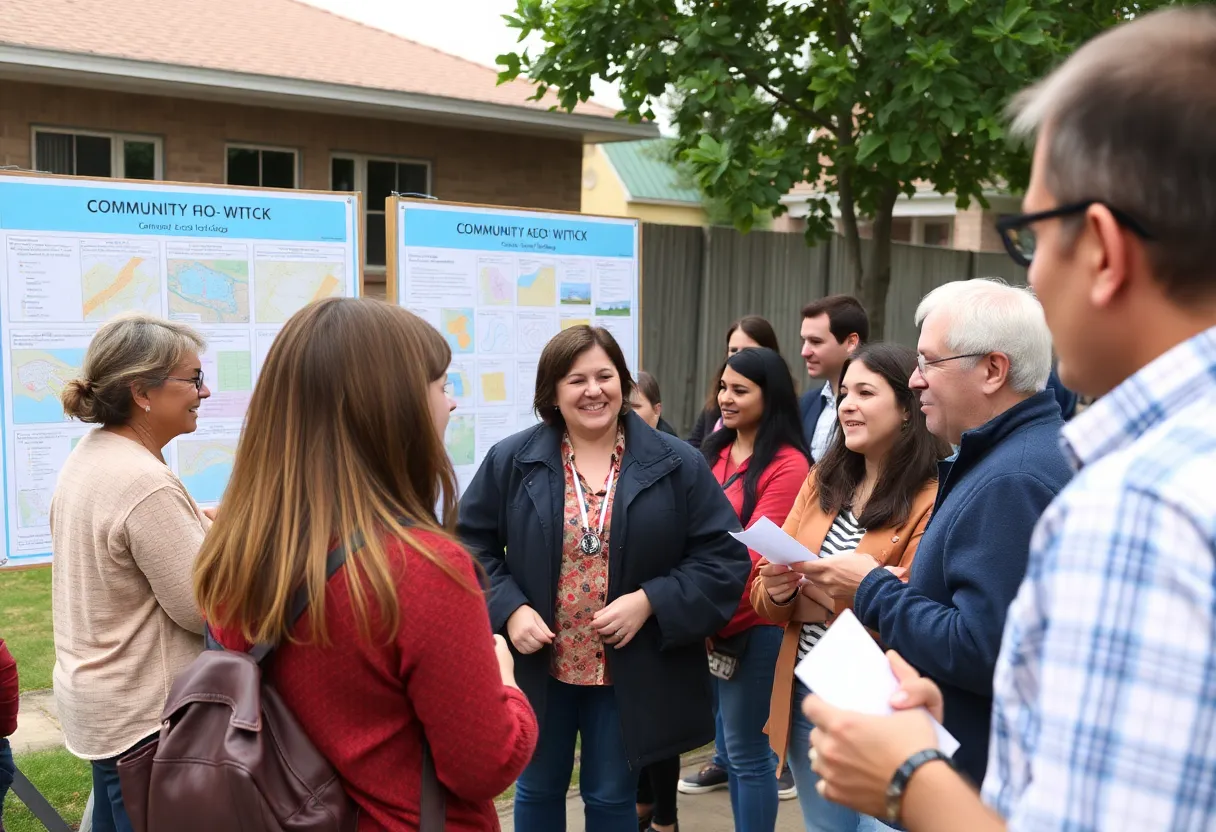News Summary
Leon County commissioners voted to advance a proposed comprehensive plan outlining community growth standards, despite public concerns over its implications on local neighborhoods and city infrastructure. The Leon City Commission postponed action on the plan following criticisms about public engagement. Key issues discussed included land use and zoning codes, particularly concerning the placement of gas stations in residential areas. Future public hearings are scheduled to continue involving residents in the decision-making process for community growth.
Leon County, Florida – In a pivotal meeting held on May 13, Leon County commissioners voted 6-1 to advance the transmittal of a newly proposed comprehensive plan, a significant document that outlines standards for community growth and governance. The decision comes amid ongoing public concerns regarding the approval process and the implications of the plan on local neighborhoods and city infrastructure.
Meanwhile, the Leon City Commission postponed any action regarding the comprehensive plan during its meeting on May 14, primarily due to a lack of public engagement and a hurried agenda. This decision follows two years of development on the plan, which has now reached a critical juncture.
The comprehensive plan serves as a state-mandated directive that governs various elements of community growth, including future land use, transportation, and environmental considerations. The updates will impact numerous areas, namely the trails and greenways master plan and land development codes, which dictate how land can be developed and utilized.
Public hearings were conducted during both meetings, with numerous residents expressing significant concerns, particularly those residing within city limits. The county commission’s ability to address some concerns was limited due to jurisdictional boundaries, leaving many issues related to urban infill and zoning codes, such as the designation for gas stations, unresolved.
Residents voiced frustration about the rapid pace of city growth and its potential impacts on their communities. Specific issues raised included the positioning of gas stations in residential areas and the alteration of neighborhood restoration statuses, which could drastically change the character of local communities. For example, one resident highlighted the increase in parking issues caused by nearby businesses and the subsequent strain on residential streets.
Commissioner Nick Maddox acknowledged the residents’ concerns yet emphasized the county commission’s limited power in addressing city-centric issues. The decision to advance the transmittal process carried a proposal for potential future adjustments, particularly in the Midtown area, reflecting an understanding of the community’s apprehensions.
At the city commission meeting, the discourse was constrained, allowing public speakers only 90 seconds each, which limited the opportunity for residents to fully express their views on the proposed plan. Reports suggest there were over 20 speakers present, many of whom had also attended the previous day’s county meeting to discuss the comprehensive plan.
City Commissioner Dianne Williams-Cox raised concerns regarding the lack of awareness among community members about the proposed comprehensive plan, given the lengthy development process over the past two years. Her comments were echoed by City Commissioner Jack Porter, who noted that accessible public documentation had only been available for a few months, suggesting a disconnect between the city’s planning process and community engagement.
Despite the challenges in communication and participation, public input opportunities concerning the comprehensive plan will continue, with future hearings scheduled for both the city and county commissions. This ongoing engagement aims to involve residents in discussions about land use amendments and other significant proposals, which include contested plans for gas stations positioned within residential zones.
Many residents have expressed a desire for greater involvement in the decision-making process regarding future developments, emphasizing the need for continued dialogue to ensure that community concerns are adequately addressed. The situation highlights the complexities of managing urban growth while balancing public concerns and regulatory requirements.
In conclusion, as Leon County moves forward with its comprehensive plan, the interplay between community voices and governmental decision-making will be critical. Both the county and city commissions are expected to navigate these discussions thoughtfully, ensuring that local residents’ perspectives are heard and considered.
Deeper Dive: News & Info About This Topic
HERE Resources
Oil Prices Take a Dive with Nuclear Deal Hopes on the Horizon
FSU College of Medicine Receives $200,000 Donation to Support School Program
Capital Health Plan Donates $200,000 to FSU College of Medicine
Chinese Officials Celebrate Trade Deal with the U.S.
89-Year-Old Man Killed by Bear in Florida’s First Fatal Attack
Tallahassee Proposes $670K Annual Funding for Airport Incentives
Florida Bill Proposes Changes to High School Graduation Requirements
Tallahassee Prepares for 2025 Hurricane Season with Community Workshops
Florida Lawmakers Set to Reconvene for Budget Finalization
Amerant Bank Opens New West Palm Beach Banking Center
Additional Resources
- Tallahassee.com: Growth Plan Divides Tallahassee-Leon County Leaders
- Wikipedia: Leon County, Florida
- Tallahassee.com: Comprehensive Plan for Tallahassee
- Google Search: Leon County Florida growth plan
- Tallahassee Reports: Leon County Workshop on Southside Action Plan
- Encyclopedia Britannica: Tallahassee
- Tallahassee.com: Urban Redevelopment Comprehensive Plan
- Google News: Tallahassee comprehensive plan

Author: STAFF HERE TALLAHASSEE WRITER
The TALLAHASSEE STAFF WRITER represents the experienced team at HERETallahassee.com, your go-to source for actionable local news and information in Tallahassee, Leon County, and beyond. Specializing in "news you can use," we cover essential topics like product reviews for personal and business needs, local business directories, politics, real estate trends, neighborhood insights, and state news affecting the area—with deep expertise drawn from years of dedicated reporting and strong community input, including local press releases and business updates. We deliver top reporting on high-value events such as Springtime Tallahassee, Tallahassee Jazz & Blues Festival, and LeMoyne Chain of Parks Art Festival. Our coverage extends to key organizations like the Greater Tallahassee Chamber of Commerce and United Way of the Big Bend, plus leading businesses in education, healthcare, and insurance that power the local economy such as Florida State University, Tallahassee Memorial HealthCare, and Capital Health Plan. As part of the broader HERE network, including HEREJacksonville.com, HEREOrlando.com, HEREStPetersburg.com, and HERETampa.com, we provide comprehensive, credible insights into Florida's dynamic landscape.


